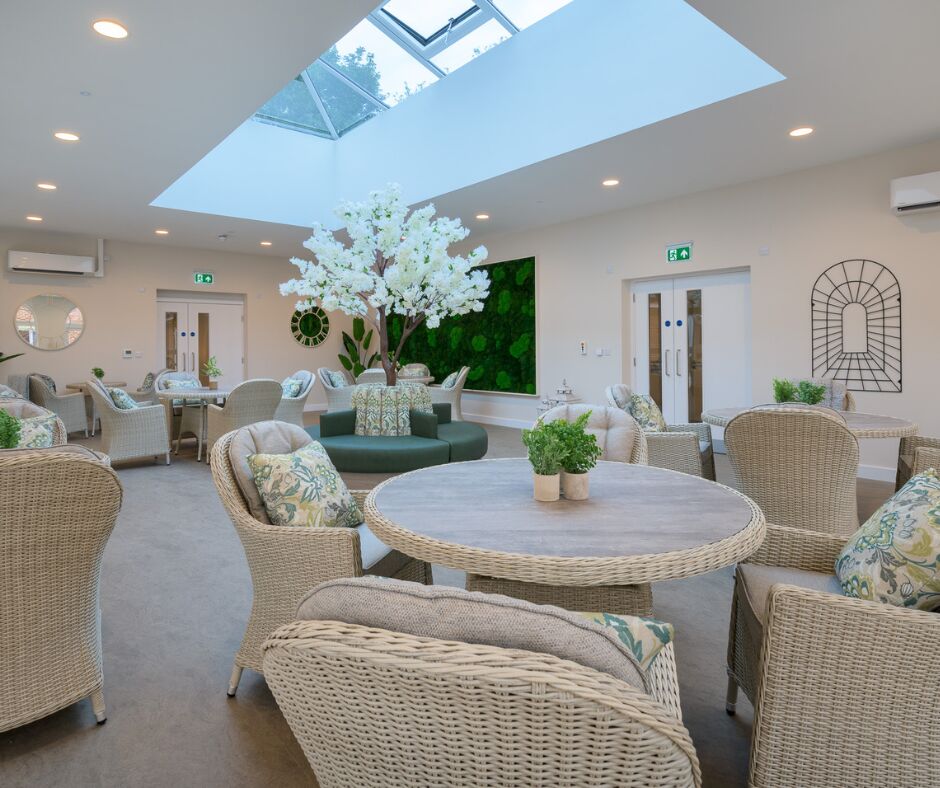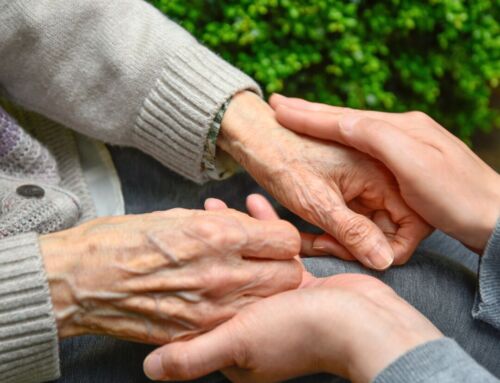With nearly 6 million unpaid carers in the UK, demand for additional support for family carers is increasing.
Being a family carer is incredibly challenging. From balancing emotional responsibilities to managing physical care needs, it’s a role that often comes with little rest and even less recognition.
To help alleviate the pressure unpaid carers face, care homes such as St Mary’s welcome family carers to reach out and visit to see what additional support they can receive.
For those unaware of the options and resources that care homes have to offer, this blog will highlight the key services and the benefits it can bring. Whether it is a simple drop in to a coffee morning to day care and respite, there are a variety of support pillars in place that ensure individuals and carers get the help they need.
Advice & Emotional Support
Caring for a loved one can often feel isolating, especially when faced with long days, difficult decisions or unexpected health challenges. This is backed up by figures from Carers UK which show that 1.7 million people in the UK are providing 50 or more hours of care per week.
However, help to tackle feelings of isolation and advice on handling complex care challenges is an area that care homes can support. Care home staff are not only trained in clinical and personal care, they’re also there to support carers emotionally.
Many care homes offer informal advice sessions, regular check-ins and open-door policies that allow family carers to ask questions, share their concerns, or simply come in to have a chat.
Whether it’s guidance on dementia care or understanding changes in mobility for a loved one, experienced care home staff can provide reassurance and practical help to ease the pressure on family carers.
Events that Connect Local Carers
No one understands the highs and lows of being a carer quite like another carer. That’s why in addition to welcoming drop ins; care homes also often hold community events designed to bring carers together.
From carer cafés to wellbeing workshops, these events are safe, welcoming spaces where carers can relax, connect, and share their experiences.
By attending regular community events, these meet-ups help build a strong network of mutual support, including people who fully understand what it means to be a carer.
Day Care Services
Sometimes, just a day to rest, run errands, or catch up with friends can make a world of difference to a carer’s wellbeing. Day care services offered by care homes give carers the chance to have a break, knowing their loved one is in a safe and supportive environment.
Dropping a loved one off at a care home, a typical day care routine includes freshly prepared meals, sensory therapy sessions, social activities, and the opportunity for guests to mingle with residents and staff.
Often care homes will have a meeting with a carer first to put together a day care plan, ensuring it is tailored to individual care needs and preferences.
Not only does that individual get an opportunity to get out the house and experience facilities and activities that they wouldn’t have access to at home, their carers can enjoy peace of mind knowing their loved one is actively enjoying their day in a safe environment.
Respite Services
When a longer break is needed for a family carer, whether that’s for a family holiday, surgery recovery, or simply to prevent burnout, respite care can be a game-changer.
Short-term stays in a care home allow carers to step away and recharge. In a safe and warm care environment, their loved one benefits from personalised care, access to activities, nutritious meals, and the opportunity for social interaction with other residents.
Respite can also be important for maintaining a carer’s own health and wellbeing, particularly with complex care needs such as advanced dementia.
Another benefit for a family carer is if their loved one should need permanent residency in future, they will have developed a rapport and confidence with the specific care home that has provided respite.
This makes the transition from moving into a care home easier as the individual would be moving to a place that they know, with staff and residences that they have met before and know what care they require.
Move to Permanent Residency When Needed
Many carers across the UK are in situations where they or their home are no longer able to provide the level of care their loved one needs. While this can be an emotional and difficult decision, care homes are here to help make that transition as smooth and supported as possible.
Whether it is an initial care assessment, a show round or the actual moving day, care homes work closely with families to ensure continuity of care, comfort, and compassion.
In cases where individuals require professional care, many family carers find relief in knowing their loved one is safe, active and part of a caring community.
Learn More About Care Home Support
Want to learn more about the different levels of support a care home provides?
Get in touch with our team today – https://www.stmarysgroup.co.uk/contact-us/







